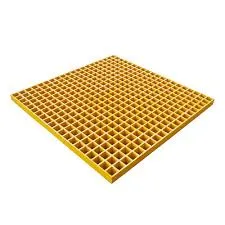
-
 Afrikaans
Afrikaans -
 Albanian
Albanian -
 Amharic
Amharic -
 Arabic
Arabic -
 Armenian
Armenian -
 Azerbaijani
Azerbaijani -
 Basque
Basque -
 Belarusian
Belarusian -
 Bengali
Bengali -
 Bosnian
Bosnian -
 Bulgarian
Bulgarian -
 Catalan
Catalan -
 Cebuano
Cebuano -
 China
China -
 China (Taiwan)
China (Taiwan) -
 Corsican
Corsican -
 Croatian
Croatian -
 Czech
Czech -
 Danish
Danish -
 Dutch
Dutch -
 English
English -
 Esperanto
Esperanto -
 Estonian
Estonian -
 Finnish
Finnish -
 French
French -
 Frisian
Frisian -
 Galician
Galician -
 Georgian
Georgian -
 German
German -
 Greek
Greek -
 Gujarati
Gujarati -
 Haitian Creole
Haitian Creole -
 hausa
hausa -
 hawaiian
hawaiian -
 Hebrew
Hebrew -
 Hindi
Hindi -
 Miao
Miao -
 Hungarian
Hungarian -
 Icelandic
Icelandic -
 igbo
igbo -
 Indonesian
Indonesian -
 irish
irish -
 Italian
Italian -
 Japanese
Japanese -
 Javanese
Javanese -
 Kannada
Kannada -
 kazakh
kazakh -
 Khmer
Khmer -
 Rwandese
Rwandese -
 Korean
Korean -
 Kurdish
Kurdish -
 Kyrgyz
Kyrgyz -
 Lao
Lao -
 Latin
Latin -
 Latvian
Latvian -
 Lithuanian
Lithuanian -
 Luxembourgish
Luxembourgish -
 Macedonian
Macedonian -
 Malgashi
Malgashi -
 Malay
Malay -
 Malayalam
Malayalam -
 Maltese
Maltese -
 Maori
Maori -
 Marathi
Marathi -
 Mongolian
Mongolian -
 Myanmar
Myanmar -
 Nepali
Nepali -
 Norwegian
Norwegian -
 Norwegian
Norwegian -
 Occitan
Occitan -
 Pashto
Pashto -
 Persian
Persian -
 Polish
Polish -
 Portuguese
Portuguese -
 Punjabi
Punjabi -
 Romanian
Romanian -
 Russian
Russian -
 Samoan
Samoan -
 Scottish Gaelic
Scottish Gaelic -
 Serbian
Serbian -
 Sesotho
Sesotho -
 Shona
Shona -
 Sindhi
Sindhi -
 Sinhala
Sinhala -
 Slovak
Slovak -
 Slovenian
Slovenian -
 Somali
Somali -
 Spanish
Spanish -
 Sundanese
Sundanese -
 Swahili
Swahili -
 Swedish
Swedish -
 Tagalog
Tagalog -
 Tajik
Tajik -
 Tamil
Tamil -
 Tatar
Tatar -
 Telugu
Telugu -
 Thai
Thai -
 Turkish
Turkish -
 Turkmen
Turkmen -
 Ukrainian
Ukrainian -
 Urdu
Urdu -
 Uighur
Uighur -
 Uzbek
Uzbek -
 Vietnamese
Vietnamese -
 Welsh
Welsh -
 Bantu
Bantu -
 Yiddish
Yiddish -
 Yoruba
Yoruba -
 Zulu
Zulu
fiberglass pipe flanges
Fiberglass Pipe Flanges The Future of Industrial Piping Solutions
In the ever-evolving landscape of industrial materials, fiberglass has emerged as a highly beneficial option, particularly in piping systems. Among the various components of these systems, fiberglass pipe flanges play a crucial role in ensuring the integrity and efficiency of fluid transport. Fiberglass, a composite material made from woven glass fibers and resin, offers unique properties that make it advantageous for flange applications.
One of the primary benefits of fiberglass flanges is their lightweight nature. Compared to traditional materials like steel or cast iron, fiberglass is significantly lighter, making installation and handling much easier. This can lead to lower labor costs and faster installation times, which are critical in industries where time is money. Moreover, the reduction in weight does not compromise strength; fiberglass flanges exhibit high tensile strength and can withstand significant pressure, making them suitable for various industrial applications.
Corrosion resistance is another key advantage of fiberglass pipe flanges. Many industrial environments involve the transport of corrosive fluids, which can rapidly deteriorate traditional metal flanges. Fiberglass, on the other hand, is highly resistant to chemical attack and does not rust or corrode. This property extends the lifespan of the flanges and reduces maintenance costs, contributing to a more economical piping solution over time.
fiberglass pipe flanges

Thermal insulation is an additional benefit of fiberglass materials. Due to their insulating properties, fiberglass flanges help maintain the temperature of the fluids being transported, thus reducing energy losses. This is particularly beneficial in industries where temperature control is crucial, such as the chemical and food processing sectors.
Furthermore, fiberglass is a versatile material that can be engineered to meet specific project requirements. Designers and engineers have the ability to customize the shape, size, and mechanical properties of fiberglass flanges, making them suitable for a variety of applications including water treatment, oil and gas, and power generation. The adaptability of fiberglass allows for innovative piping designs that can cater to the unique needs of different industries.
In conclusion, fiberglass pipe flanges represent a significant advancement in piping technology. Their lightweight nature, corrosion resistance, thermal insulation properties, and versatility make them an invaluable choice for industrial applications. As industries continue to seek more durable and cost-effective materials, fiberglass flanges are poised to become a standard in piping systems, paving the way for improved efficiency and longevity in fluid transport solutions. Adopting fiberglass technology not only benefits individual projects but also promotes sustainable practices by reducing material waste and minimizing maintenance, aligning with the broader goals of environmental stewardship in industrial operations.
Latest news
-
Exploring the Benefits of Top Hammer Drifter Rods for Enhanced Drilling PerformanceNewsJun.10,2025
-
High-Precision Fiberglass Winding Machine for GRP/FRP Pipe Production – Reliable & Efficient SolutionsNewsJun.10,2025
-
FRP Pipes & Fittings for Shipbuilding - Corrosion-Resistant & LightweightNewsJun.09,2025
-
Premium FRP Flooring Solutions Durable & Slip-ResistantNewsJun.09,2025
-
Premium Fiberglass Rectangular Tanks Durable & Lightweight SolutionNewsJun.09,2025
-
Tapered Drill String Design Guide Durable Performance & UsesNewsJun.09,2025









